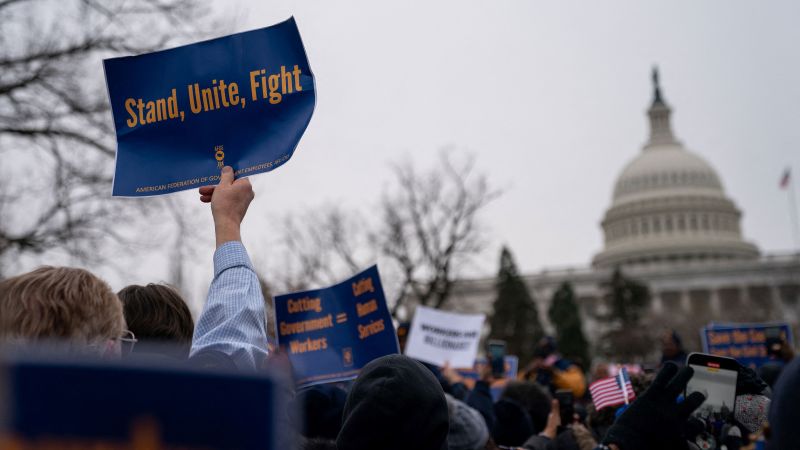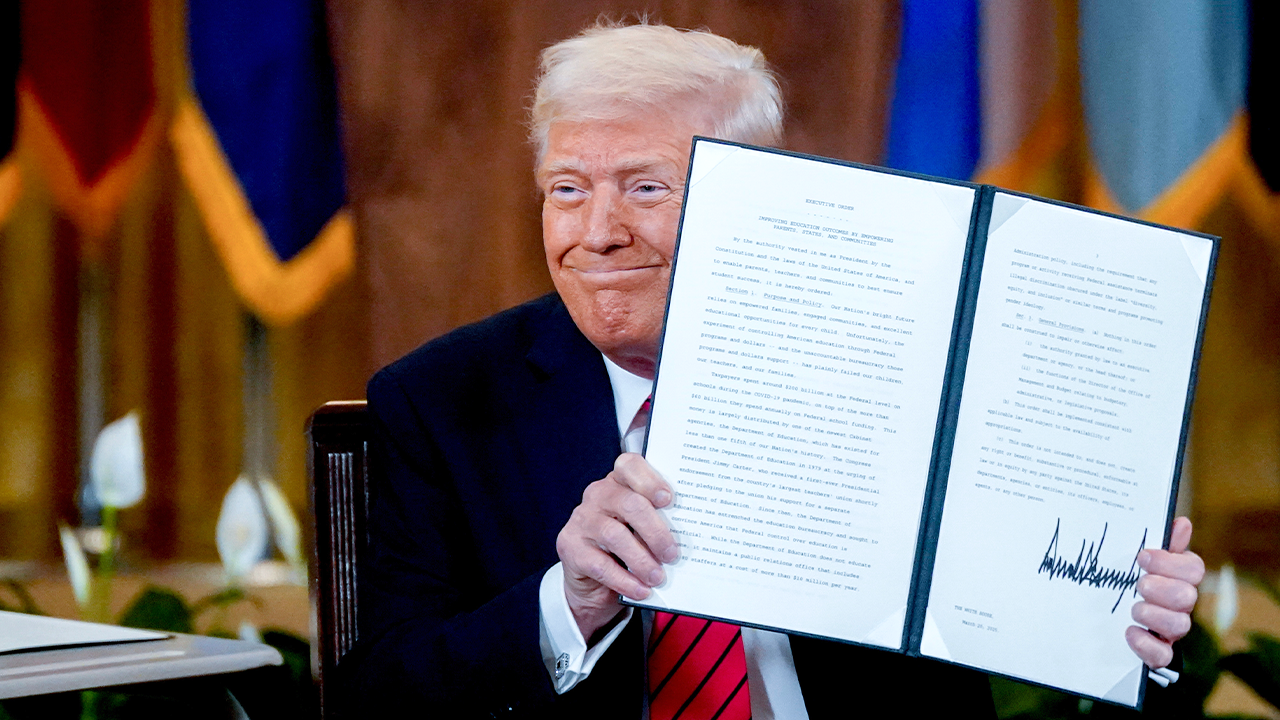Trump Signs Executive Order to End Collective Bargaining for National Security Agencies
President Trump takes decisive action to end collective bargaining for federal unions in national security agencies, citing national security concerns and union obstructions.
Subscribe to unlock this story
We really don't like cutting you off, but you've reached your monthly limit. At just $3/month or $30/year, subscriptions are how we keep this project going. Start your free 7-day trial today!
Get Started
Since taking office, Trump has sought to reshape the federal workforce.
Trump signs executive order ending collective bargaining rights for many federal workers | Politics
 CNN·23d·ReliableThis source consistently reports facts with minimal bias, demonstrating high-quality journalism and accuracy.Leans LeftThis outlet slightly leans left.
CNN·23d·ReliableThis source consistently reports facts with minimal bias, demonstrating high-quality journalism and accuracy.Leans LeftThis outlet slightly leans left.
The need to end collective bargaining with federal unions in these agencies is because of their role in safeguarding national security, according to the order.
 FOX News·23d·Mostly ReliableThis source is generally reliable but sometimes includes opinion, propaganda, or minor inaccuracies.Leans RightThis outlet slightly leans right.
FOX News·23d·Mostly ReliableThis source is generally reliable but sometimes includes opinion, propaganda, or minor inaccuracies.Leans RightThis outlet slightly leans right.The announcement builds on previous moves by the Trump administration to erode collective bargaining rights in the government.
Trump signs executive order to end collective bargaining at agencies involved with national security
 Associated Press·23d·ReliableThis source consistently reports facts with minimal bias, demonstrating high-quality journalism and accuracy.CenterThis outlet is balanced or reflects centrist views.
Associated Press·23d·ReliableThis source consistently reports facts with minimal bias, demonstrating high-quality journalism and accuracy.CenterThis outlet is balanced or reflects centrist views.
Summary
President Trump signed an executive order to terminate collective bargaining with federal unions in agencies related to national security, claiming it's necessary for efficient operations. The order affects various departments, including Defense and Justice, and has drawn immediate backlash from unions like the AFGE, which plans to challenge it legally. The administration cites ongoing union grievances as obstruction to Trump's policies, asserting the need for a responsive civil service. This marks a significant escalation in the administration's efforts to reshape federal workforce dynamics.
Perspectives
President Trump signed an executive order to end collective bargaining for federal unions in national security agencies, citing the Civil Service Reform Act of 1978 as his authority.
The American Federation of Government Employees (AFGE) and other unions have condemned this move as an attack on workers' rights, promising legal action in response.
The administration argues that the order is necessary to ensure federal agencies can operate effectively and respond to national security needs without union obstruction.
FAQs
No FAQs available for this story.